Calendar
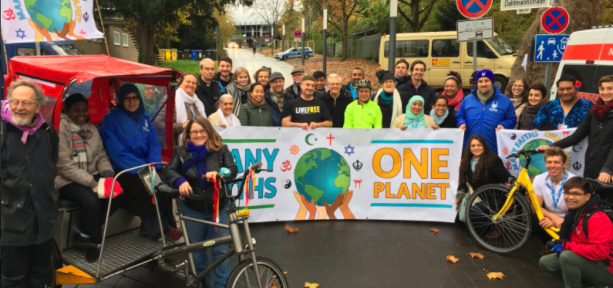 As recent scientific reports have made clear, a 45% reduction in greenhouse gas emissions by 2030 is needed to avoid the worst impacts of a changing climate. The multifaith statement to the U.N. Climate Conference, Walk on Earth Gently, invites people of faith into a journey of Living the Change that the world needs – a transformation to a sustainable lifestyle. The journey is inspired by religious teachings to turn away from consumerism & to seek balanced relationships with all people and the planet we share as our common home. Texans of all faiths, or no faith at all, are invited join us on the journey, in a weekly small group discussion focused on making personal lifestyle changes in three key areas: transportation, energy, and food. Join us on this 12-week journey to reducing your contribution to greenhouse gas emissions. Can’t make it every week? Join us as you are able. A detailed schedule is given below. All participants will receive a copy of Living the Change materials. Are you ready to commit to a more sustainable lifestyle? Then join us on this journey to Living the Change.  Please register for this event on www.eventbrite.com.
As recent scientific reports have made clear, a 45% reduction in greenhouse gas emissions by 2030 is needed to avoid the worst impacts of a changing climate. The multifaith statement to the U.N. Climate Conference, Walk on Earth Gently, invites people of faith into a journey of Living the Change that the world needs – a transformation to a sustainable lifestyle. The journey is inspired by religious teachings to turn away from consumerism & to seek balanced relationships with all people and the planet we share as our common home. Texans of all faiths, or no faith at all, are invited join us on the journey, in a weekly small group discussion focused on making personal lifestyle changes in three key areas: transportation, energy, and food. Join us on this 12-week journey to reducing your contribution to greenhouse gas emissions. Can’t make it every week? Join us as you are able. A detailed schedule is given below. All participants will receive a copy of Living the Change materials. Are you ready to commit to a more sustainable lifestyle? Then join us on this journey to Living the Change.  Please register for this event on www.eventbrite.com.
Sept. 28:Â Introduction & Transport, week 1
Oct. 5, Oct. 12 & Oct. 19: Transport, weeks 2, 3 & 4
Oct. 26, Nov. 2, Nov. 9 & Nov. 16: Energy, weeks 1, 2, 3, & 4
Nov. 23, Nov. 30, & Dec. 7: Food, weeks 1, 2 & 3
Dec. 14: Food, week 4 & closing
 As recent scientific reports have made clear, a 45% reduction in greenhouse gas emissions by 2030 is needed to avoid the worst impacts of a changing climate. The multifaith statement to the U.N. Climate Conference, Walk on Earth Gently, invites people of faith into a journey of Living the Change that the world needs – a transformation to a sustainable lifestyle. The journey is inspired by religious teachings to turn away from consumerism & to seek balanced relationships with all people and the planet we share as our common home. Texans of all faiths, or no faith at all, are invited join us on the journey, in a weekly small group discussion focused on making personal lifestyle changes in three key areas: transportation, energy, and food. Join us on this 12-week journey to reducing your contribution to greenhouse gas emissions. Can’t make it every week? Join us as you are able. A detailed schedule is given below. All participants will receive a copy of Living the Change materials. Are you ready to commit to a more sustainable lifestyle? Then join us on this journey to Living the Change.  Please register for this event on www.eventbrite.com.
As recent scientific reports have made clear, a 45% reduction in greenhouse gas emissions by 2030 is needed to avoid the worst impacts of a changing climate. The multifaith statement to the U.N. Climate Conference, Walk on Earth Gently, invites people of faith into a journey of Living the Change that the world needs – a transformation to a sustainable lifestyle. The journey is inspired by religious teachings to turn away from consumerism & to seek balanced relationships with all people and the planet we share as our common home. Texans of all faiths, or no faith at all, are invited join us on the journey, in a weekly small group discussion focused on making personal lifestyle changes in three key areas: transportation, energy, and food. Join us on this 12-week journey to reducing your contribution to greenhouse gas emissions. Can’t make it every week? Join us as you are able. A detailed schedule is given below. All participants will receive a copy of Living the Change materials. Are you ready to commit to a more sustainable lifestyle? Then join us on this journey to Living the Change.  Please register for this event on www.eventbrite.com.
Sept. 28:Â Introduction & Transport, week 1
Oct. 5, Oct. 12 & Oct. 19: Transport, weeks 2, 3 & 4
Oct. 26, Nov. 2, Nov. 9 & Nov. 16: Energy, weeks 1, 2, 3, & 4
Nov. 23, Nov. 30, & Dec. 7: Food, weeks 1, 2 & 3
Dec. 14: Food, week 4 & closing
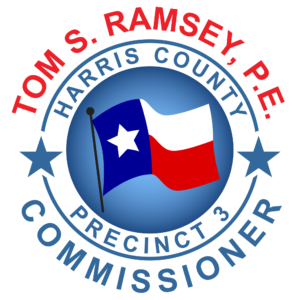
From our local parks to our backyards or balconies, nature can be found almost anywhere as long as we remember to look for it. This monthly program will help you learn more about the natural world around your home and how you can provide for it. In each informal class we will spend most of our time outside, using a variety of methods to observe and identify our flora and fauna. You may want to bring a hat, optics, and a notebook.
This program is best suited for adults and kids ages 10 and up.

From our local parks to our backyards or balconies, nature can be found almost anywhere as long as we remember to look for it. This monthly program will help you learn more about the natural world around your home and how you can provide for it. In each informal class we will spend most of our time outside, using a variety of methods to observe and identify our flora and fauna. You may want to bring a hat, optics, and a notebook.
This program is best suited for adults and kids ages 10 and up.
Eco Shares: New Ecology-Friendly Economics
Tuesday, February 08, 2022 – 6:30 PM
 Nature-based carbon capture and storage is among the hottest topics in industry and agriculture today. The ecological systems of the Earth provide many different services for humans that until recently have not been part of the human economic system. That is changing and will continue to change as we evolve a new economy that is circular rather than linear as it is today. Prairies, forests and oyster reefs can remove carbon dioxide from the atmosphere and store it in trees and soil and the reef itself, and a market is emerging for buying and selling credits that are certified scientifically. But, with various types of credits being offered by different types of entities, it can feel like the wild west out there.
Nature-based carbon capture and storage is among the hottest topics in industry and agriculture today. The ecological systems of the Earth provide many different services for humans that until recently have not been part of the human economic system. That is changing and will continue to change as we evolve a new economy that is circular rather than linear as it is today. Prairies, forests and oyster reefs can remove carbon dioxide from the atmosphere and store it in trees and soil and the reef itself, and a market is emerging for buying and selling credits that are certified scientifically. But, with various types of credits being offered by different types of entities, it can feel like the wild west out there.
Joining the Houston Museum of Natural Science this evening is Rice University Professor Jim Blackburn for a discussion of nature-based carbon and other transactions as we delve into the economy of the future.

From our local parks to our backyards or balconies, nature can be found almost anywhere as long as we remember to look for it. This monthly program will help you learn more about the natural world around your home and how you can provide for it. In each informal class we will spend most of our time outside, using a variety of methods to observe and identify our flora and fauna. You may want to bring a hat, optics, and a notebook.
This program is best suited for adults and kids ages 10 and up.
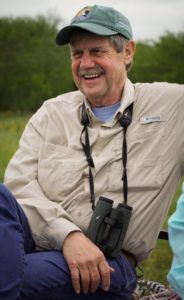
Join Jim Blackburn, Professor in the Practice in Environmental Law at Rice University, who will discuss his new book, Earth Church, which he co-authored with artist Isabelle Scurry Chapman. Earth Church is a book about Earth-based spirituality, a subject that will become much more prominent in a future defined by a changing climate and the creation of a new economic system that is circular rather than linear. At the center of Earth-based spirituality is the Earth itself, that wonderful planet without which we would not be. Blackburn will weave a narrative around the poetry and art of Earth-based spirituality. Time for interactive discussion with the speaker will be provided. Please register for this talk on www.eventbrite.com. Contact Lisa Brenskelle at gcs.lrc@gmail.com with any questions.
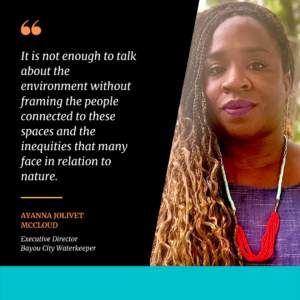
In a generation, much of the U.S. will resemble the lower Galveston Bay Watershed, a 10-county region surrounding Houston which Bayou City Waterkeeper (BCWK) serves. Home to the most diverse population, and also one of the most ecologically diverse major urban areas, our waterways — consisting of 2,500 miles of bayous, as well as creeks, coastlines, and the ocean — support immense biodiversity. Our region has lived through unprecedented storm surges and widespread flooding from hurricanes and heavy rain storms over the last two decades. Amplifying the worst effects of these storms are the region’s long-time underinvestment in forward-thinking flood prevention, lax attitudes towards land use regulation, and historic redlining practices which have driven over-development of ecologically sensitive wetland areas and the outer-lying parts of our city. Ayanna Jolivet Mccloud, Executive Director of BCWK, will explore the critical role that collective visioning, ecological imagination and storytelling play in connecting to and advocating for our region’s waterways and our community. Beyond the built environment, how can we use imagination as a tool to explore new ways to restore prairies and wetlands, which hold rainfall and prevent flooding? How can we use imagination as a tool for new approaches towards water infrastructure that center ecological impacts and environmental justice. Established in 2001, Bayou City Waterkeeper is a Houston-based organization working at the confluence of conservation and environmental justice toward cleaner water, wetlands and healthy ecosystems, and just, resilient communities. Time for interactive discussion with the speaker will be provided. Please register for this talk on www.eventbrite.com at https://www.eventbrite.com/e/collective-visioning-for-our-regions-water-tickets-288968451417. Contact Lisa Brenskelle at gcs.lrc@gmail.com with any questions.
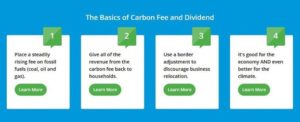
Members of Citizen’s Climate Lobby explain the ins and outs of carbon fee & dividend as an economic policy tool to address climate change. Learn about the positive impact not only on the environment, but also on jobs, the economy, and human health.  And, carbon fee & dividend has been deemed by economists as the fastest way to reduce greenhouse gas emissions of any economic policy approach. But, best of all, carbon fee & dividend is designed to ensure equity and justice, a key concern of people of all faith/spiritual traditions. Please register for this event on www.eventbrite.com at: https://www.eventbrite.com/e/carbon-fee-dividend-whats-justice-got-to-do-with-it-tickets-307725203367. Contact Lisa Brenskelle at gcs.lrc@gmail.com for more details.
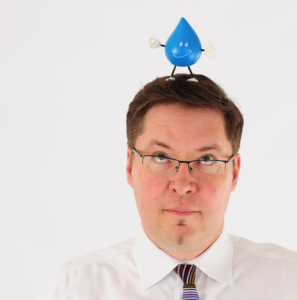
Groundwater is, as famously quoted by the Texas Supreme Court in 1904, “secret, occult, and concealed.†Sometimes referred to as “hidden water,†it is out of sight and, therefore, unfortunately, out of mind. However, groundwater comprises 98.7 percent of all the fresh, unfrozen water on Earth. About 40 percent of all surface-water flows in the United States are sourced from innumerable seeps and springs that discharge groundwater into streams and rivers. Groundwater supports 26 percent of the human use of water with 70 percent of it watering crops. As drier areas become drier and droughts increase everywhere, groundwater is expected to make up the difference. Unfortunately, much of the groundwater used across the planet is produced unsustainably. This unsustainable use affects flows to springs, streams, rivers, wetlands, and estuaries that support ecologies as well as human needs. In some cases, such as in the Houston area, groundwater production has caused the land to sink, increasing flooding. In this presentation, Professor Mace will present what he has learned about groundwater sustainability through a report he published late last year title “Five Gallons in a Ten-Gallon Hat: Groundwater Sustainability in Texas†and in a forthcoming book titled “Groundwater Sustainability: Its Birth, Development, and Application.†Listeners will have a better understanding of what groundwater sustainability is, how Texas and the greater Houston area is doing with sustainable groundwater management, and what people can do to achieve groundwater sustainability. Time for interactive discussion with the speaker will be provided. Please register for this talk on www.eventbrite.com at https://www.eventbrite.com/e/how-long-will-our-aquifers-last-tickets-314757356727. Contact Lisa Brenskelle at gcs.lrc@gmail.com with any questions.